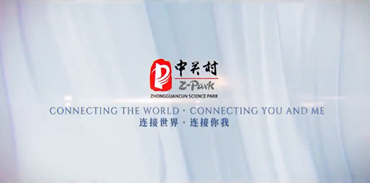Electronics mall makes way for Beijing park
Beijing's Zhongguancun science park in Haidian district will soon close its last wholesale market for electronic goods.
The teardown of the Guang'anzhonghai electronics wholesale market, with an area of 4,800 square meters, began on May 15. Authorities said the project will be completed in one month and the space will be repurposed as a public park.
Shops started moving out in November after ceasing operations on Dec 4.
"Once Zhongguancun completes its upgrade, it will provide a better environment for companies and attract more startups," said Lai Yang, executive vice-president of the Beijing Association for Business Economics.
"In fact, the wholesale market has been creating security risks and traffic problems. The business model no longer fits the development of Zhongguancun," an urban management official in Haidian was quoted as saying by Beijing newspaper Business Today on Wednesday.
According to a State Council statement on Beijing's master plan (2016-35), which was announced in September, the capital will deepen its strategy of innovation-driven development and focus more on service industries, including science, technology, finance, culture and emerging industries, such as integrated circuits and new energy.
"Zhongguancun should play a more important role by becoming a pilot for self-innovation," the statement said.
Zhongguancun is China's first National High-Tech Industrial Development Zone, famous for its electronics industry and innovative activity.
Before the transition to high-tech industry in 2009, Zhongguancun was a street market for electronics, mainly wholesale malls featuring electronic parts and components, as well as computer assembly services.
The five major electronic wholesale markets that once dominated the area now focus on education, innovation and public service.
One of the five, Hailong, an electronics hub, closed in 2016. Taipingyang, another former wholesale market, is now a Peking University classroom building.
Kemao Electronics City, once Asia's largest IT sales building, still has some shops selling computers, but newcomers are developing quickly. The sixth floor of the building houses an educational organization, and the eighth floor provides space for startups.
"If the education companies and startups develop quickly, they may gradually squeeze us out," said Tang DeLong, who works at a computer store on Kemao's fourth floor.
He said the final plan for the market has not been announced yet, but the business has already been affected.
"My expectation is that we still have two years to go. After that, we need to find other things to do," he said.
Lai, of the business economics group, said that online electronic sales platforms will replace traditional markets.
"Zhongguancun should develop multiple industries within a whole range of reforms," Lai said.
Xu Yutao contributed to this story.
dujuan@chinadaily.com.cn

